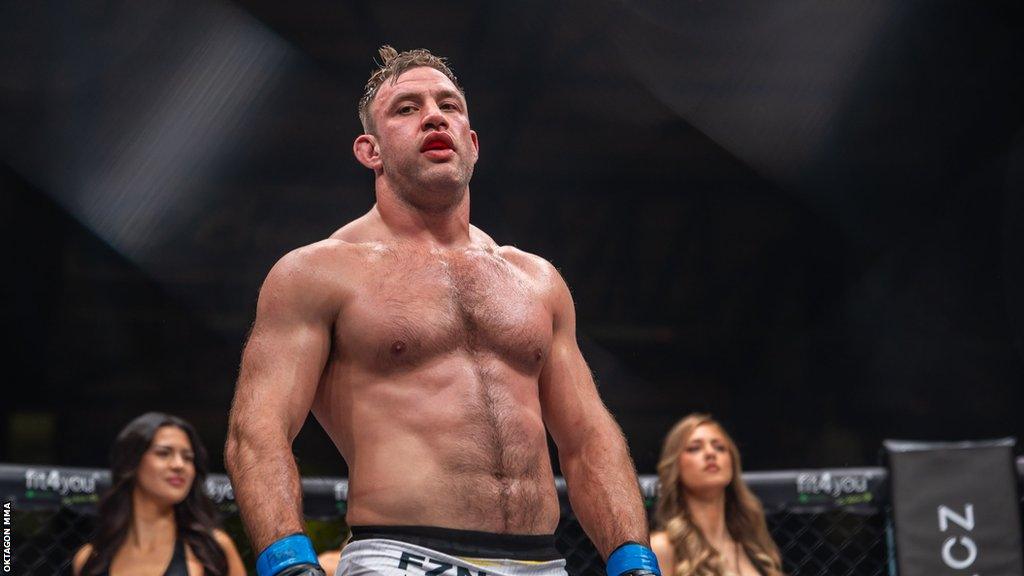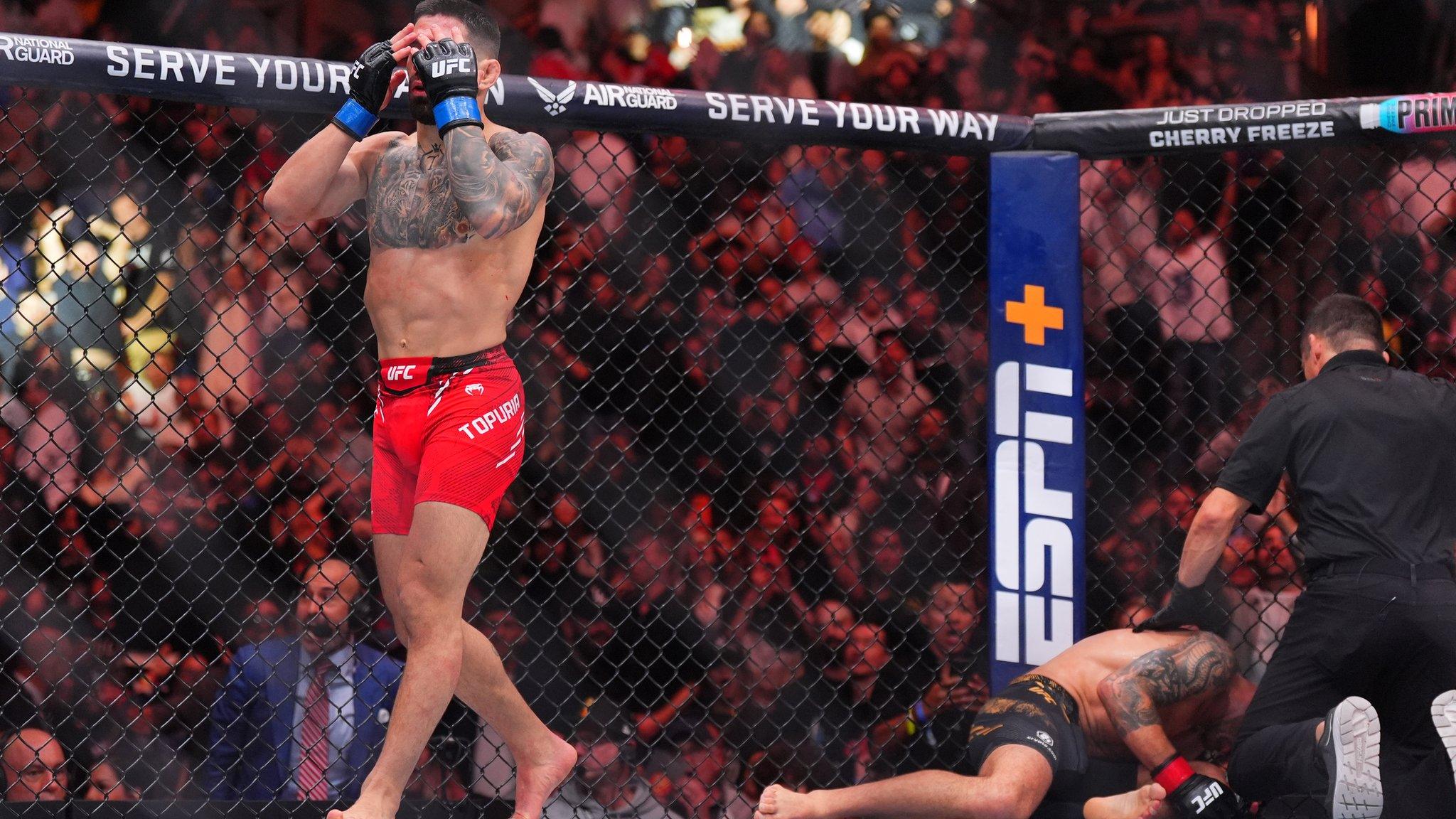Open scoring: Oktagon fighters' opinion split after system used at Newcastle show
- Published

Briton Stuart Austin says open scoring helped his strategy on fight night
Before British mixed martial artist Stuart Austin starts the second round of his heavyweight fight against Adam Palasz, he looks up and sees something which changes the dynamic of the bout.
Austin, 35, notices on the big screens inside the Utilita Arena in Newcastle that the judges have awarded the first round to his opponent.
The concept of open scoring between rounds - allowing fighters to see how judges are assessing a fight - is rare in MMA, with European promotion Oktagon adopting it for the first time in December before bringing it to the UK.
Realising he's losing the fight, Austin ups his aggression, knocking Palasz down with an elbow before submitting him with an arm triangle.
"I liked the open scoring. I looked up and there were the scores and I was like 'Oh flipping heck I lost that round - I better go and throw a few more punches and kicks and try a bit harder'," said Austin.
"I liked it. It actually affected my strategy a bit and I pushed a bit harder."
Czech-Slovak promotion Oktagon held their first UK show in Manchester in November, but the event in Newcastle marked their debut on British soil using open scoring.
US-based promotion Invicta Fighting Championships has trialled the system in the past, but the majority of organisations such as the UFC, PFL and Bellator stick to the more traditional format of judges' scorecards being revealed after the fight.
In a close bout this prevents fighters from coasting at the end as they cannot be sure if they are ahead on the scorecards, and it builds anticipation and excitement for fans around the announcement of the winner.
The case against open scoring
But there are people opposed to the traditional format, with some questionable judging decisions prompting discussions about open scoring in recent years.
Following Ketlen Vieira's split decision win over Holly Holm in May 2022, MMA journalist Ariel Helwani advocated for open scoring,, external writing it would help hold judges more accountable for their decisions and give fighters a better understanding of where they stand.
UFC commentator Jon Anik welcomed the discussion, but warned open scoring could lead to fans putting too much pressure on fighters in the latter rounds.
Jack Cartwright, who lost by decision to Jonas Magard in the main event in Newcastle, suggested open scoring takes excitement away from fights.
"I want to finish the fight. I'm not in there to play the point scoring game. I don't like the open scoring - I don't like it as a fan, I don't like it as a fighter," said Cartwright.
"Say you're up two rounds but you don't know, you might have to risk a little bit more which lets the other guy back into the fight, and I think that makes a fight more exciting."
Oktagon co-owner Pavol Neruda says he has received mostly positive feedback on open scoring, and had opted to implement it to provide more transparency for fighters and fans alike.
"We believe it's the right thing to do. Why doesn't it exist? It should exist because it's fair," said Neruda.
"It's more entertainment for fans and I'm super-curious why it's not in the sport since day one."
Related topics
- Published12 January 2024

- Published11 January 2024
